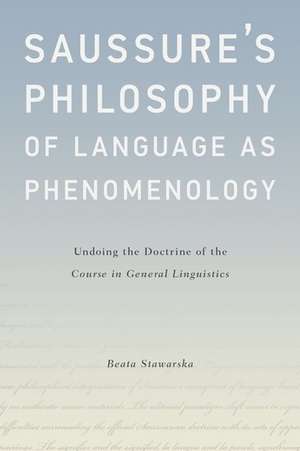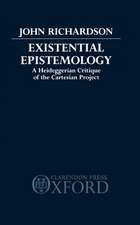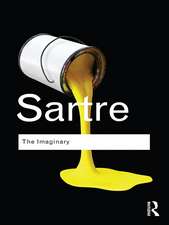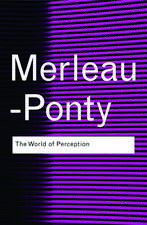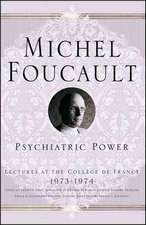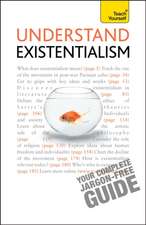Saussure's Philosophy of Language as Phenomenology: Undoing the Doctrine of the Course in General Linguistics
Autor Beata Stawarskaen Limba Engleză Hardback – 12 mar 2015
Preț: 528.21 lei
Preț vechi: 673.89 lei
-22% Nou
Puncte Express: 792
Preț estimativ în valută:
101.07€ • 105.83$ • 83.83£
101.07€ • 105.83$ • 83.83£
Carte tipărită la comandă
Livrare economică 31 martie-05 aprilie
Preluare comenzi: 021 569.72.76
Specificații
ISBN-13: 9780190213022
ISBN-10: 0190213027
Pagini: 304
Dimensiuni: 236 x 160 x 31 mm
Greutate: 0.52 kg
Editura: Oxford University Press
Colecția OUP USA
Locul publicării:New York, United States
ISBN-10: 0190213027
Pagini: 304
Dimensiuni: 236 x 160 x 31 mm
Greutate: 0.52 kg
Editura: Oxford University Press
Colecția OUP USA
Locul publicării:New York, United States
Recenzii
Stawarska's lucid and energetic analysis questions the identification of Saussure with prevalent views on structuralism and makes the case for reexamining Saussures legacy from a phenomenological perspective in order to reveal philosophical complexity of his work. In doing so, her study succeeds in challenging received ideas with broader implications, emphasizing the need to rethink the history of ideas in Europe and to retrace the intellectual connections severed after the Second World War.
Stawarska's analysis provides overwhelming evidence that the misrepresentation of Saussure is bound up with the reduction of structuralism to a post-WWII French phenomenon cut off, on the one hand, from its prior developments and, on the other, from its contemporaneous deployments, especially in what was then communist Eastern Europe
Stawarska writes well; her book is often both pleasant to read and thought-provoking ... erudite and inspiring.
Stawarska has produced a landmark text that makes critical contributions to Saussures scholarship, continental views of language, the history of ideas, and serves as a key textual ally for feminist and decolonial perspectives on language and embodiment. What she accomplishes is nothing short of a rug-pulling inversion of Saussures thought that will also force metaphilosophical discussions in the classroom and conference halls alike.
Stawarska's analysis provides overwhelming evidence that the misrepresentation of Saussure is bound up with the reduction of structuralism to a post-WWII French phenomenon cut off, on the one hand, from its prior developments and, on the other, from its contemporaneous deployments, especially in what was then communist Eastern Europe
Stawarska writes well; her book is often both pleasant to read and thought-provoking ... erudite and inspiring.
Stawarska has produced a landmark text that makes critical contributions to Saussures scholarship, continental views of language, the history of ideas, and serves as a key textual ally for feminist and decolonial perspectives on language and embodiment. What she accomplishes is nothing short of a rug-pulling inversion of Saussures thought that will also force metaphilosophical discussions in the classroom and conference halls alike.
Notă biografică
Beata Stawarska is Associate Professor of Philosophy at the University of Oregon. She is an author of Between You and I: Dialogical Phenomenology (Ohio UP, 2009) and a number of essays in contemporary European Philosophy. Recent recipient of the Humboldt Fellowship for Advanced Researchers, Stawarska is an expert in phenomenology, structuralism and post-structuralism.
